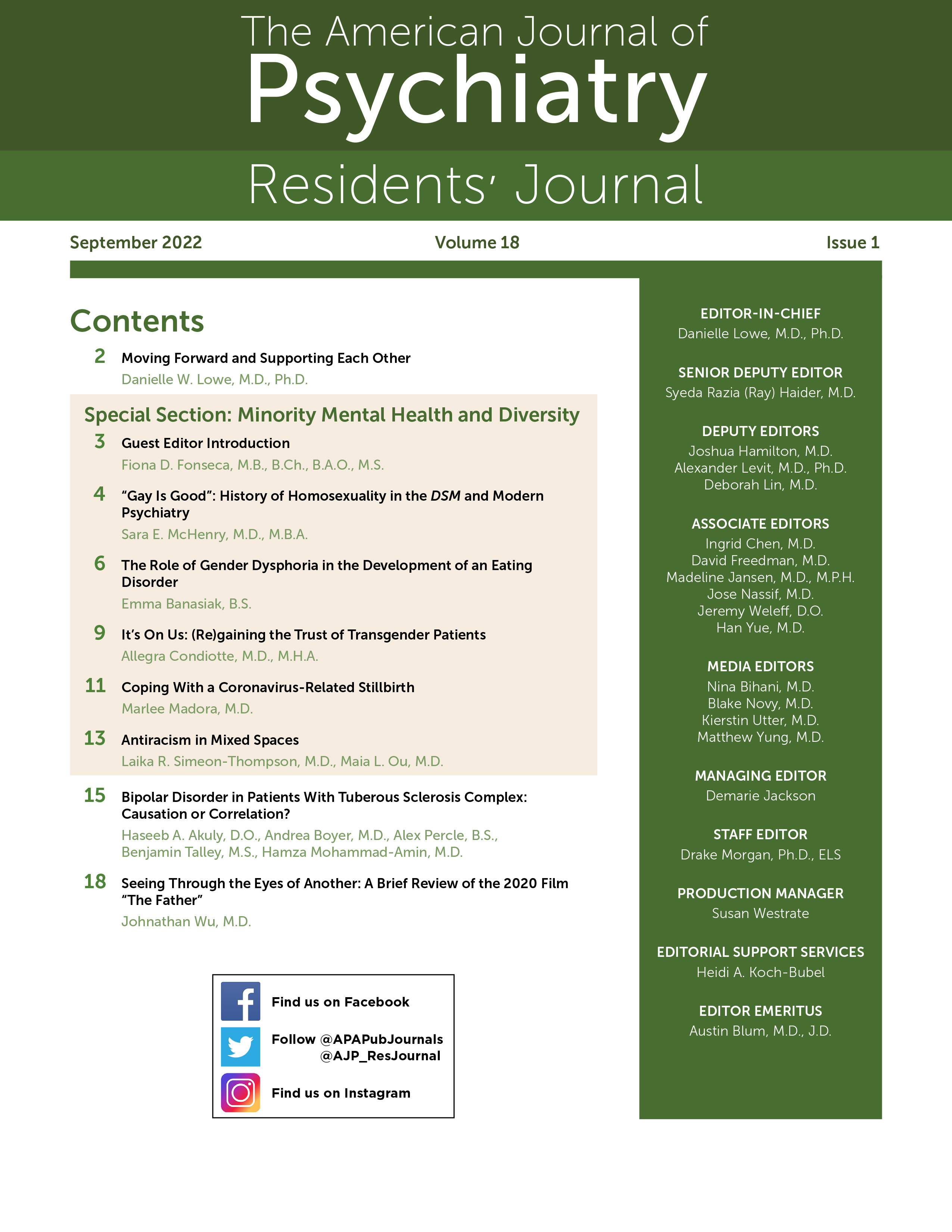Coping With a Coronavirus-Related Stillbirth
During the COVID-19 pandemic, pregnant women have attempted to avoid both the infection, given that they are immunocompromised during pregnancy, and the consequences of social isolation. In the summer of 2021, the American College of Obstetricians and Gynecologists encouraged expectant mothers to get vaccinated because of the elevated morbidity and mortality among pregnant women and the associated risk of fetal demise due to placental insufficiency from COVID-19 (1, 2). Many women followed this recommendation and felt tremendous relief, while others waited for more information.
A patient I met in December 2021 wished to postpone inoculation because she did not want to subject her unborn child to the potential side effects of a new vaccine. She had stayed in her house for months, not interacting with anyone besides her husband. Finally, she allowed her brother-in-law to visit for Thanksgiving. Five days later, she developed myalgias, fever, cough, and shortness of breath. A week passed, and although her symptoms persisted, she preferred to avoid an overcrowded hospital. “I will get better,” she told herself. Eventually, her husband called an ambulance to bring her to the emergency department as he noticed her worsening disorientation from the infection. She required immediate intubation for severe respiratory distress due to untreated COVID-19 pneumonia. Hypoxia soon led to the demise of her 34-week fetus. When the stillbirth was extracted from her uterus, she was sedated and intubated, unaware of the tragic turn of events. Two days later, she was extubated, and she awakened to her profound loss. I was the psychiatry resident called to help her process her grief.
“I know I lost the baby,” I remember her saying. “But I also lost the chance to say goodbye.” Those words helped me understand how deep this trauma would go. The loss of a pregnancy, the deprivation of unification with the deceased, a near-death experience, and the guilt and shame related to contracting COVID-19 all compounded to form a deep wound that would necessitate much more healing than I could offer in our 1-hour encounter. She would weather more unfortunate complications from the virus, but in time, she recovered physically and psychologically. She would think back to the baby that she lost but also looked forward to getting pregnant again.
I found anger brewing within me upon leaving her room. How could she not have gotten the vaccine? How could she not have sought out medical care earlier? Why didn’t she listen to the medical community’s recommendations on COVID-19 vaccination? The more I asked these questions, the more I realized my anger was turning to blame, distancing me from my patient.
My supervisor then encouraged me to take a step back and notice my countertransference. I was in the midst of experiencing my own grief, grappling with a tragic loss. I recognized my frustration with societal skepticism of medicine, fueled by the recent attacks on science and the antivaccination “infodemic” (3). I considered the long history of medical exploitation of communities of color and that my patient, who was Black, had less access to quality medical care than her White counterparts (4). I needed to acknowledge that her distrust and avoidance of the medical system were part of a larger context.
Once I grasped these concepts and my own emotions, we were able to foster a relationship built with empathy, openness, and trust. Our newfound alliance allowed us both to process the loss. This clinical experience further motivated me to prioritize advocacy, in times of COVID-19 and beyond. I will carry this connection with me through the pursuit of both healing and justice for our patients and ourselves (5).
1. ACOG and SMFM recommend COVID-19 vaccination for pregnant individuals. Washington, DC, American College of Obstetricians and Gynecologists, 2021. https://www.acog.org/news/news-releases/2021/07/acog-smfm-recommend-covid-19-vaccination-for-pregnant-individuals. Accessed February 4, 2022 Google Scholar
2. : Placental tissue destruction and insufficiency from COVID-19 causes stillbirth and neonatal death from hypoxic-ischemic injury: a study of 68 cases with SARS-CoV-2 placentitis from 12 countries. Archives Pathol Lab Med (Online ahead of print, Feb 10, 2022) Crossref, Google Scholar
3. : The anti-vaccination infodemic on social media: a behavioral analysis. 2021. https://doi.org/10.1371/journal.pone.0247642 Google Scholar
4. : Medical Apartheid: The Dark History of Medical Experimentation on Black Americans From Colonial Times to the Present. New York, Anchor Books, 2006 Google Scholar
5. : Harnessing the potential of the therapeutic alliance. World Psychiatry 2014; 13:238–240 Crossref, Google Scholar



